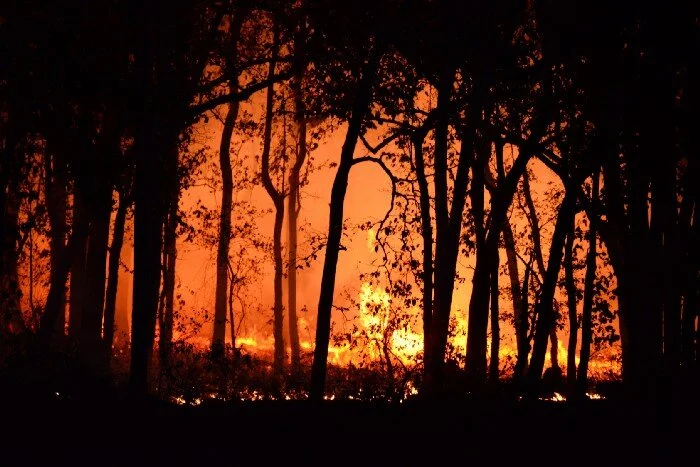Romi, Heather and I discuss the gut-brain axis and how our microbiome plays a critical role in supporting mental health.
A Podcast Interview with Alexandra Greenberg!
Check out this mircobiome deep dive interview with Dr. Piper and Alexandra!
Air Quality And Wildfire Smoke
As hazardous air quality levels (Air Quality Index of 400+) have surrounded the Pacific North West (PNW) for over a week due to wildfires I wanted to take some time to discuss what this smoky air means for our health.
Wildfire smoke is rough and it causes various gases, liquids, and even solids to become part of the air we breathe. The gases contained in the smoke include…
Climate: A New Story by Charles Eisenstein - A MUST Read!
Just this weekend I finished reading Climate: A New Story by Charles Eisenstein and holy moly I cannot recommend this book enough! You may be thinking, “You’re a doctor, and you’re telling me to read a book about Climate?” You bet I am! And I’m going to tell you why. 😘
When a patient enters my office, sometimes they have a diagnosis, sometimes they have an array of symptoms that they’d like to address, sometimes they haven’t seen a doctor in years because they don’t trust the medical system, or they just never felt what they were experiencing was something that could be helped.
Each person is a new mystery and I love unpacking the world in which they live. That world, believe it or not, is significantly impacted and influenced by their external environment - because each individual is their own unique ecosystem.
An ecosystem is a community of organisms that work together to provide stability to their physical environment. In this case, the “organisms” are various bacteria, fungi, viruses - some may even say parasites - that help keep their physical environment (YOU, the person) healthy.
Rob Knight, the leader in the field of microbiome science (all those bugs that live in and on us) said, “While our genomes may be 99.9 percent the same, our gut microbiomes can be 100 percent different.” Whoa! That’s insane, right?! And when we start looking at people as ecosystems, then it’s easy to understand we are a reflection of the environment around us, a microcosm of the greater macrocosm (hat’s off, Rudolph Steiner).
So, yes. Climate matters! When I’m talking with patients about their food choices, we have to considering the overuse of pesticides in the environment and the climate cycles that can transfer those pollutants. These are important things we should all be concerned about if we are going to live the healthiest life attainable. The suffix “-cide” means “a killer of.” And when you understand that the trillions of cells it takes to make you, and further realize those cells are outnumbered by bacterial populations 10 to 1, this should make you step back and wonder how these “-cides” are impacting the bugs that are YOU.
What I love about this book are not the depressing facts presented of the damages we have already done to various animal, insect, and microbe populations, that share this living planet with us (though these figures are vastly important for us to acknowledge and understand); rather it is the actionable solutions he provides, guided by a change of perception centered around one of my favorite things: love. He states early on, “Love benumbed, we believe that we can inflict damage without suffering damage ourselves.” That is a powerful sentiment.
Love underlies so many of the beautiful things we have the opportunity to experience in this life. It is the teacher of many lessons. I hope everyone has the opportunity, at least once in their life, to experience deep love. Because once you’ve felt it, once you’ve experienced its all-encompassing energy, then you, as much as I will understand – a life, place, or world without love is not a world I want to be a part of. If a revolution of love is the solution? Sign me up!



